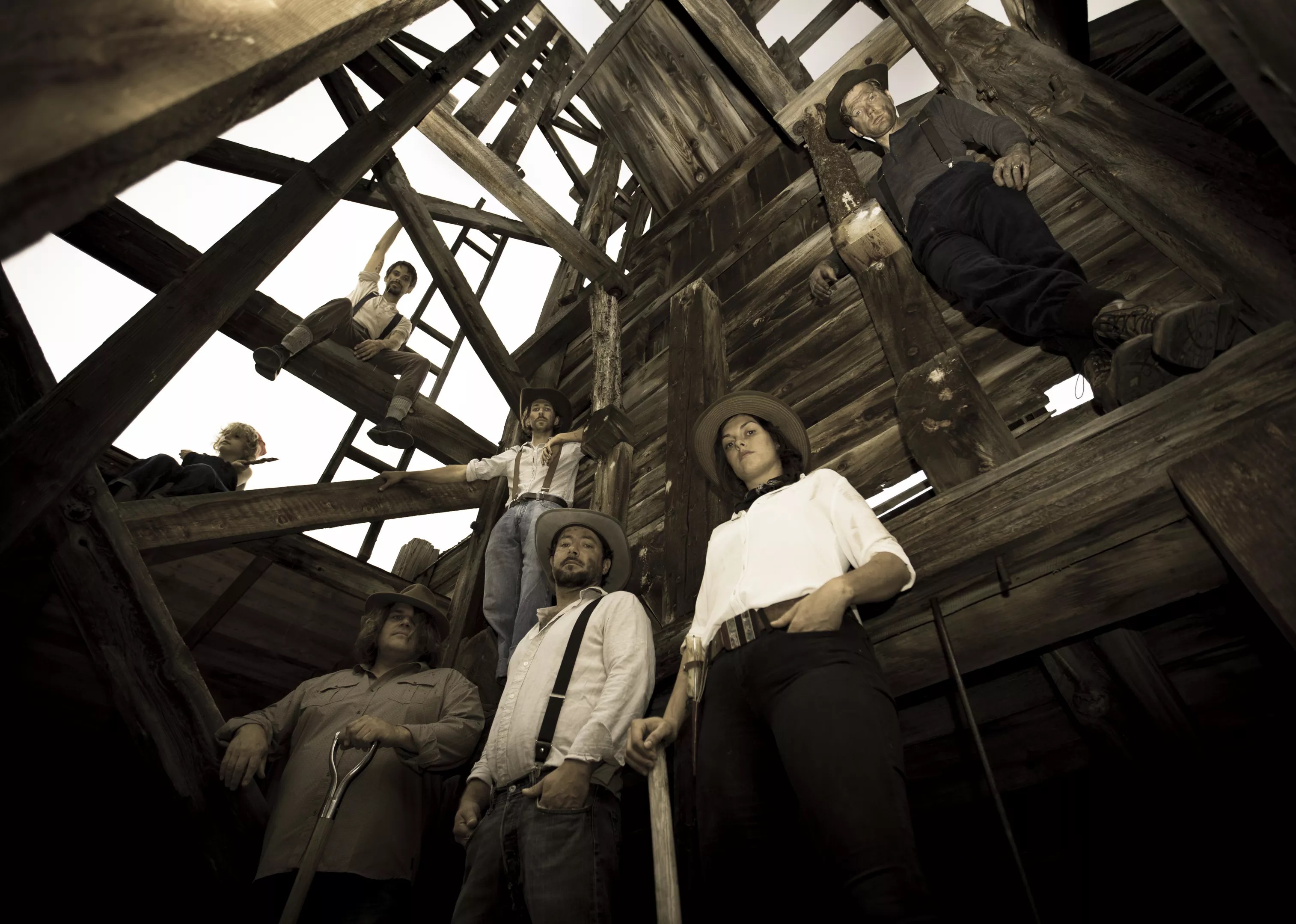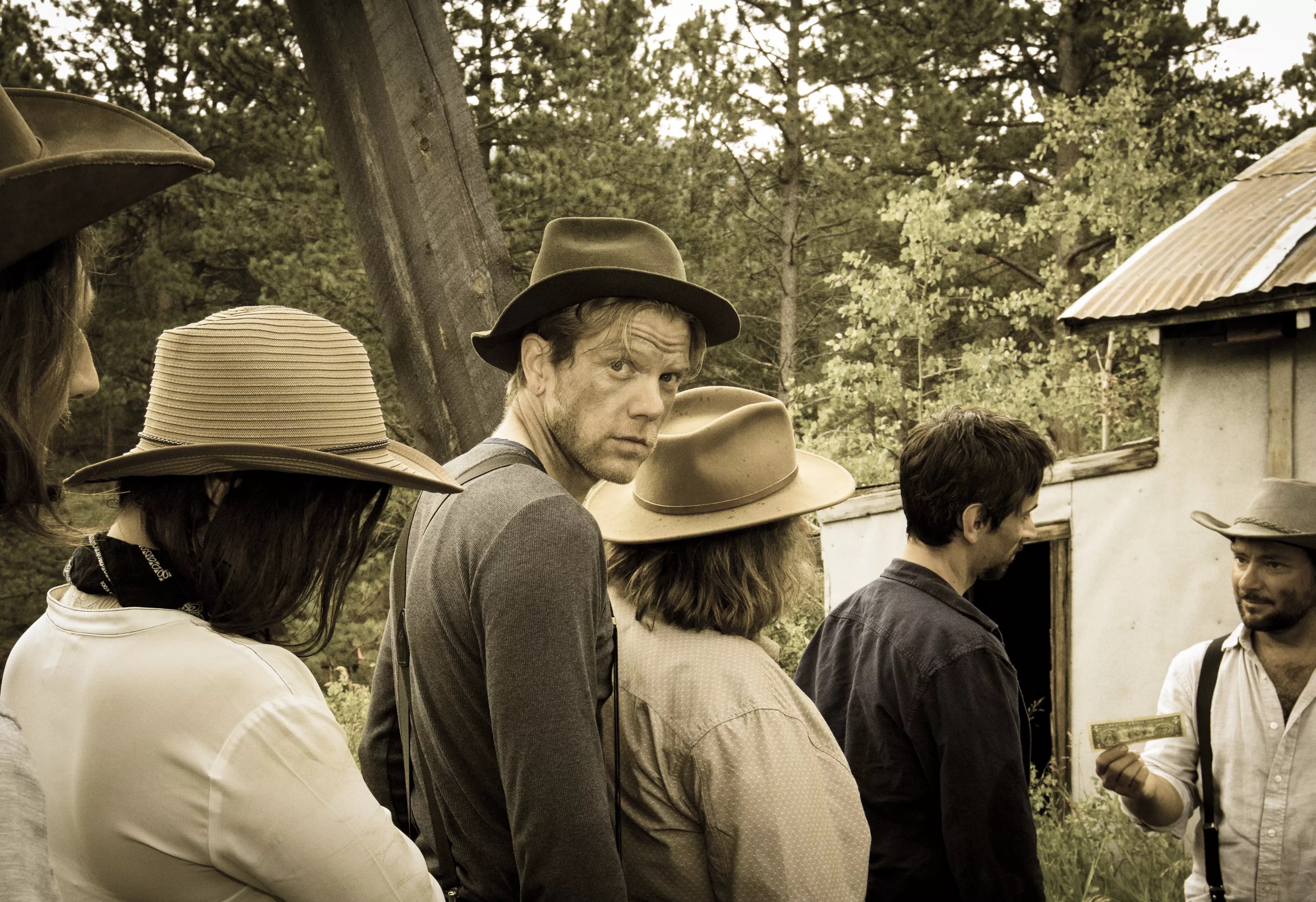
Ryan Cox

Audio By Carbonatix
Clay Rose’s teenage mohawk changed his life – and nearly destroyed it.
Attending high school in the ’90s in Franklin, Tennessee, Rose wore the hairdo to spit in the face of the small town’s establishment. He would blast his favorite bands – NOFX and the Violent Femmes, whom he admired for their snarky humor – like a weapon against Franklin’s residents; in turn, they looked down on him, attacked him and called him names.
“I was in the middle of the Bible Belt. The mascot of the high school was the Franklin Rebels, so we had a big rebel flag hanging outside our school,” he says. “I was only there for a year and a half, but in that time, three riots broke out that made the evening news. Kids got stabbed and shot, tear gas was shot into the school, and when the principal was interviewed on the news and asked why he didn’t take down the rebel flag, he said, ‘Because this is our heritage, and I have every right to fly this flag.'”
Rose constantly fought his peers, punching back against their attacks. Others didn’t see it that way, he says. They viewed him as a troubled boy whose violent tendencies would only escalate.
“Because of all the fights, the principal had me go see a shrink,” Rose recalls. “He asked me why I was in so many fights, and I said, ‘Well, they don’t like my haircut,’ and he said, ‘Well, why don’t you cut your hair?’ And I said, ”Cause fuck them, that’s why.'”
The psychologist decided that Rose, at fifteen, had severe homicidal and suicidal tendencies, and sent him to Vanderbilt Psychiatric Hospital, where he was told he would remain until he was “cured.”
“My roommate used to try to eat himself, so they would strap him down so he wouldn’t,” Rose says.
These early traumas inspired the complex, macabre and powerful music he creates today with his band Gasoline Lollipops, which will release its latest album, Soul Mine, on December 16. The album, an intense journey through Rose’s troublesome past, combines Tom Waits’s tone with mountain bluegrass.
Rose’s lyrical style emerged when he was institutionalized. “I wrote a lot of poetry during those times,” he says. “The first poem I wrote, they confiscated it and used it against me because it was dark…and maybe voicing suicidal tendencies,” he says. “After that, I just wrote in my head – and still, to this day, I hardly ever write a word down.”
Under the watch of psychiatrists, Rose refused to talk about his negative feelings, fearing that if he did, the shrinks would lengthen his “sentence.” Wanting to get out as soon as possible, he asked his sister, who had also been institutionalized, for tips.
“When they finally allowed visitors, she came in and gave me some very sacred advice on how to bullshit your way out in a convincing way, because she had been in a couple of times,” he says. “She said, ‘You can’t pretend that nothing’s wrong; you gotta give them something to work with.'”
So he did, and he was released after two months on the condition that he would be home-bound and banned from his high school; tutors would visit him three times a week.
Shortly thereafter, he moved to Colorado for a fresh start and briefly attended New Vista High School in Boulder before dropping out for good and moving around the country. He dove into music and spent the summers with his father, a truck driver.
When Rose turned eighteen, his father met a woman in Colorado who had a daughter.

Gasoline Lollipops
Ryan Cox
“I ended up falling in love with his girlfriend’s daughter,” he says. “Things didn’t work out between my old man and his girlfriend, but I ended up marrying the daughter.”
Rose, who had been abusing drugs and alcohol, used meeting this young woman as a catalyst to move back to Colorado and sober up at 22.
“I came out here newly clean and sober, just a couple months,” Rose says. “I showed up at her window in the middle of the night and asked her to marry me.”
Around the same time, his music career was gaining steam, and in 2002, a Boulder-based music-management company that had discovered him online approached him.
“They said they were interested in signing me for a three-record deal,” he says. “Probably one of the last – at the very end of those management companies signing three-record deals.”
The company promised to help galvanize his career, but subsequently failed to do so.
“It turned out to be hell, really,” Rose says. “It was the classic nightmare record-deal experience. I wasn’t allowed to record anywhere else, but they wouldn’t record me. I wasn’t really allowed to book things on my own, but they wouldn’t book me. So it was like three years of that before I got out of that contract. I mean, some would argue [that] for a musician, for a performer – 22 to 25 are kinda like your golden years. I spent those years on the bench.”
Once free from the deal, Rose vowed never to get himself into a situation like that again and returned to playing music, this time with no contracts holding him back.

Gasoline Lollipops
Ryan Cox
“I had a pretty large chip on my shoulder. I wanted to stir things up, and I was done being a folksinger,” he says. “I started a psychobilly band. It was just a duo at first – just me and my buddy Jonny Mouser on drums, and I was playing electric guitar. We called it Gasoline Lollipops, but it was very different from what it is now. The only thing that remains the same is me.”
The band was not Rose’s main musical focus at the time; he had another project, the Widow’s Bane, that he was working on – and he nearly lost himself again while doing so.
It was a theatrical, vaudevillian “zombie-death-polka” act in which Rose and his fellow bandmates donned corpse paint, assumed new names and sang from the perspective of zombies who had been murdered by their former lovers. While the band was a hit among bloodthirsty concert-goers, Rose’s persona, Mortimer Leech, began putting insidious thoughts into his head.
“I fell off the wagon in 2009, shortly after starting the Widow’s Bane,” Rose says. “[Mortimer Leech] is so debaucherous and such an asshole, and there were a lot of nights where I’d forget that wasn’t me, and I would retreat into that character. We went on tour with that band at one point, and that was when it became very evident that I needed a change. I was gonna kill myself playing in that band.”
Aiming to create more personal music, Rose shifted his focus toward Gasoline Lollipops – and sobriety. He played without the protection of makeup or an alter-ego, and discovered that performing was harder than it used to be.
“It was something I really had to relearn,” he says. “It’s terrifying to go on stage as yourself and to sing songs about yourself to a room full of strangers who may or may not hate you. But I did actually pull a lot of tricks from Mortimer Leech’s bag, as far as how to insulate myself a little bit.”
Rose also found encouragement in the musicians joining Gasoline Lollipops.
“Once I added Don Ambory to the group, he was kinda putting it in my ear, like, ‘Hey, man, you could really do something with this band,'” Rose says. “Eventually I got the magic mixture of all these unique musicians, and since then we’ve just been snowballing.”
The band includes backup singer Alexandra Schwan, guitarist Don Ambory, bassist Brad Morse, drummer (and Westword contributor) Adam Perry, and fiddler Jeb Bows.
The group dropped its first EP, Dawn, in 2012. The title was appropriate for a collection of songs written by someone rediscovering himself; it was the first in a series of albums that would mirror Rose’s life.
“My plan was to release three EPs in one year, but then I relapsed,” Rose says. “Two years later, we released Death, and I was literally dying. Then another three years goes by, and we recorded Resurrection while I was getting sober. I didn’t mean for it to go that way, but I’m gonna think much longer and harder on my next planned trilogy. Maybe it will be Happiness, Fame and Fortune.”
The band’s latest effort, Soul Mine, while not part of the original concept, is the culmination of the last three albums and sums up Rose’s life up to this point.
“Soul Mine is sort of a retrospective of this whole story,” he says. “I try not to mind-fuck it too much and just try to have as much gratitude in my heart as possible, and open the door when opportunity knocks, and rest my mind when nobody’s knocking.”
Gasoline Lollipops vinyl release party, Saturday, December 16, Fox Theatre, 1135 13th Street, Boulder, 303-447-0095.